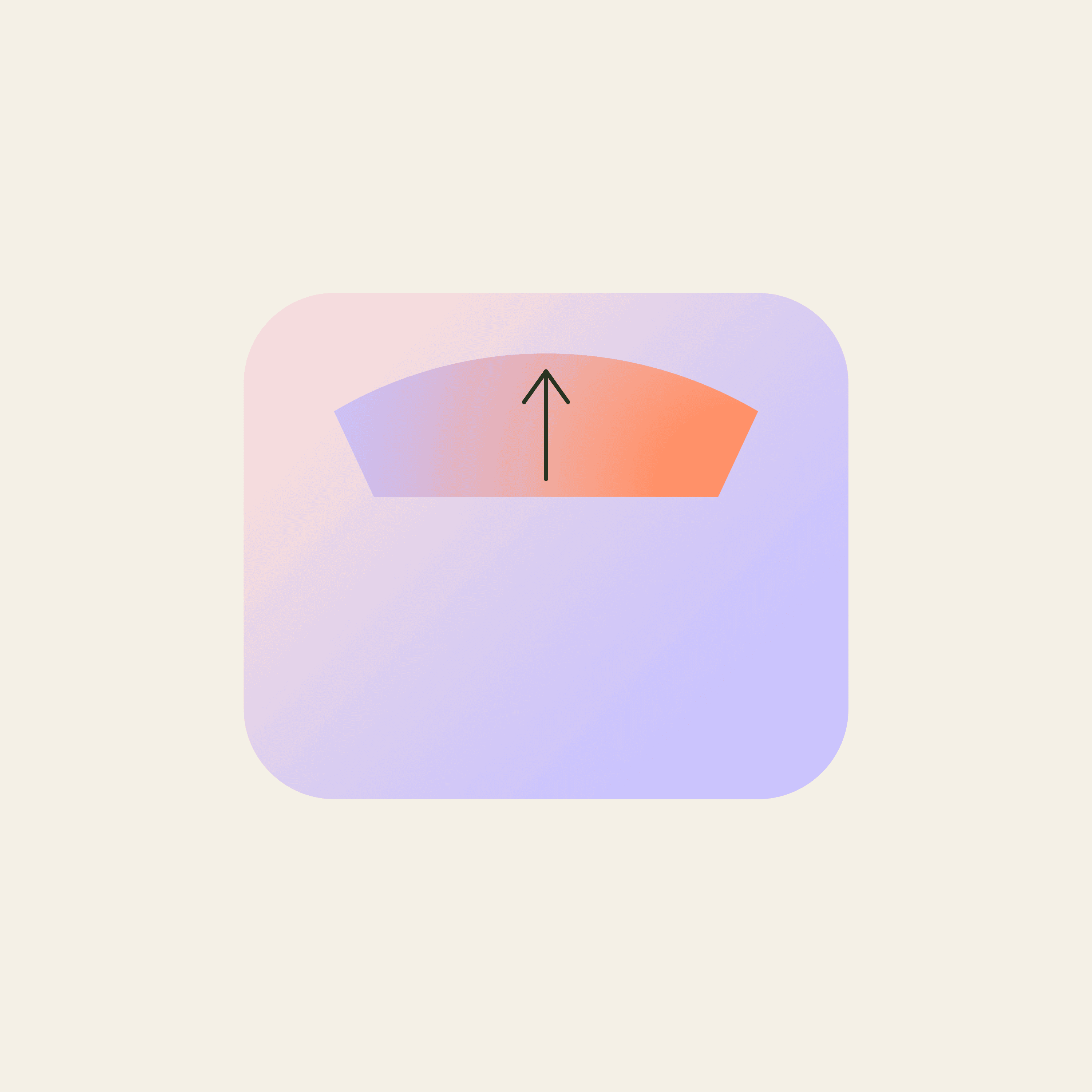It's been like this since March. Maybe April. You can't quite remember when it started. Just that one day you were fine, and then you weren't. Absolutely exhausted. The kind where you wake up tired. Where coffee does absolutely nothing. Where your colleague asks if you're okay and you nearly cry because the answer is so complicated you can't even start.
Last Tuesday you cancelled dinner with your mate for the third time this month. You couldn't face getting dressed, putting on makeup, being a functioning human who makes conversation. You used to love those dinners.
You went to your GP. They ran blood tests. Thyroid, iron, the standard checks. Everything came back normal. Which should be reassuring. But lifting the kettle still feels like bench-pressing. You still sat in your car at Tesco for ten minutes yesterday because the thought of going inside felt impossible.
Something's changed. Your body feels different. Nothing specific enough to put your finger on, just... off.
Our midlife blood test measures your complete hormone profile - oestrogen, progesterone, testosterone, FSH - plus vitamin D, B12, iron and your thyroid function. These are the most common things which influence energy, mood, and how you feel every day. You then sit down with a menopause specialist who reviews your results with you. Not just "everything's normal" - but what's actually happening in your body, what might be causing this exhaustion, and what treatment options (like HRT) might actually help.
Why menopause leaves you this exhausted
Your fatigue isn't in your head, and it's not because you're "getting older." Several very real things are happening in your body right now.
Your hormones are on a rollercoaster
During perimenopause and menopause, your oestrogen and progesterone levels fluctuate dramatically before declining. These hormones don't just control your periods. They regulate your sleep-wake cycle, your mood, your energy levels, and your body temperature. When they drop and swing wildly, everything else goes haywire too.
Oestrogen helps regulate serotonin, which affects both sleep and mood. Progesterone has a naturally calming effect on your brain. When these hormones decline, you lose that natural support for restful sleep and steady energy.
Your sleep is being sabotaged
Even if you're "getting enough hours," the quality of your sleep has likely plummeted.
Sleep problems affect 40-60% of women during menopause. Hot flushes and night sweats wake you repeatedly throughout the night. You're drenched, you're freezing, you're changing pyjamas at 2am. Even if you don't fully wake, your sleep quality suffers.
Your brain cycles through different stages of sleep, including the deep, restorative stages where your body actually recovers. When you're waking up every couple of hours, you're missing those crucial deep sleep stages. That's why eight hours of disrupted sleep leaves you feeling like you've barely slept at all.
The anxiety that often comes with perimenopause doesn't help either. Racing thoughts at 3am. Worrying about everything and nothing. Your brain refusing to shut off even though your body's desperate for rest. This creates a vicious cycle: poor sleep makes you more exhausted, exhaustion makes anxiety worse, anxiety disrupts sleep.
Your periods might be stealing your iron
If you're still having periods and they've become heavier or longer during perimenopause, you could be losing significant amounts of iron each month. Iron deficiency causes its own kind of fatigue. One that's characterised by breathlessness, pale skin, and exhaustion that doesn't budge with rest.
Women with heavy menstrual bleeding during the menopause transition are at increased risk of fatigue, even after accounting for other causes. If you're flooding through pads, passing clots, or your periods last longer than seven days, iron deficiency could be compounding your menopause fatigue.
The stress of juggling everything
Let's be real. Menopause often hits during your busiest life stage. You're likely managing work pressures, caring for ageing parents, supporting children (whether they're still at home or launched but still needing you), and trying to maintain relationships. When your energy is already depleted by hormonal changes, these normal life stresses become overwhelming.
Research shows that stress and fatigue create a vicious cycle during menopause. You're tired, so everything feels harder. Everything feeling harder makes you more stressed. Being more stressed disrupts your sleep further. And round you go.
How is this different from just being tired?
We know you're probably worrying whether you're just being dramatic or if something is genuinely wrong. Let's be clear about the difference.
Normal tiredness gets better with rest. You have a busy week, you sleep in on Saturday, you feel recharged. Menopause fatigue doesn't work like that. You can sleep ten hours and wake up feeling like you've been hit by a bus.
Normal tiredness is temporary. It comes and goes based on what you've been doing. Menopause fatigue is persistent. It's there when you wake up, follows you through the day, and doesn't budge regardless of how much you rest.
With normal tiredness, you can usually push through if you need to. With menopause fatigue, your body simply won't cooperate. Your muscles feel weak, your brain won't focus, and the exhaustion is physical.
If you've been feeling this level of tiredness for weeks or months, and it's interfering with your ability to work, socialise, or do normal activities, that's not "just being tired." That's a symptom that deserves proper treatment.
When should you actually worry?
Most fatigue during menopause is hormonal and treatable. But sometimes fatigue can signal other conditions that need checking.
Thyroid problems become more common around menopause. Depression and anxiety can cause profound fatigue. Chronic fatigue syndrome has been linked to early menopause in some studies.
You should see a menopause specialist or GP if you're experiencing:
- Fatigue that's worsening despite adequate rest
- Extreme exhaustion making it difficult to carry out daily activities
- Breathlessness, palpitations, or chest pain
- Very pale skin, especially inside your lower eyelids
- Fainting or feeling faint when you stand up
- Unexplained weight changes
- Depression or anxiety affecting your quality of life
A menopause specialist at Voy can distinguish between menopausal fatigue and other causes with a comprehensive blood test. And yes, we get that you've probably convinced yourself it's something terrible at 2am. Most likely? It's menopause-related and very treatable. But getting it checked gives you either reassurance or a diagnosis and treatment plan.
Trust your instincts. You know your body.
What actually helps with menopause fatigue
The good news (and honestly, you need some good news right now): menopause fatigue is highly treatable. You don't have to just suffer through this.
HRT is the most effective treatment
Hormone replacement therapy works by supplementing the oestrogen and progesterone your body is no longer producing at stable levels. For most women, HRT dramatically improves sleep quality by reducing hot flushes and night sweats. Better sleep means better energy.
Many women notice their energy returning within a few months of starting treatment. Body-identical progesterone (Utrogestan) has a particular benefit for sleep because it has natural sedative properties.
What if HRT alone isn't enough?
Some women find their energy improves with HRT but they're still struggling with persistent tiredness and brain fog. Testosterone can help in these cases. Yes, women make testosterone too (and we make more of it than oestrogen before menopause). It plays a role in energy, muscle strength, concentration, and motivation.
Testosterone isn't routinely offered, but menopause specialists can prescribe it when HRT hasn't fully resolved fatigue, brain fog, and low mood. It's given as a gel you apply to your skin.
Sorting out your iron levels
If you're still having periods, ask your GP or menopause specialist to check your iron levels with a blood test. If you're low, you'll likely need iron supplements. The good news? Once your iron levels improve, that particular type of exhaustion lifts relatively quickly.
If your periods are still very heavy, there are treatments beyond iron supplements. Your menopause specialist can discuss options including hormonal treatments to reduce bleeding, or referral to gynaecology if needed.
Lifestyle changes that genuinely help
We're not going to tell you to just "eat better and exercise more" as if that's a magic cure. But certain adjustments can support your energy levels alongside medical treatment.
Exercise actually does help, even though it feels counterintuitive when you're exhausted. Start small. A 10-minute walk. Gentle yoga. Whatever feels manageable.
Sleep hygiene matters more during menopause than ever. Keep your bedroom cool (16-18 degrees). Avoid caffeine after 2pm. Put your phone away an hour before bed. Stick to consistent sleep and wake times.
Managing stress isn't just about bubble baths. It's about setting boundaries, saying no when you need to, and not trying to be superhuman. Cognitive behavioural therapy can help if anxiety is keeping you awake.
Diet matters. Blood sugar spikes and crashes make fatigue worse. Regular meals with protein, complex carbs, and healthy fats help maintain steady energy.
Talk about it. Tell your partner you're running on 30% today. Tell your boss if symptoms are affecting work. Don't suffer in silence thinking you should just cope.
lp if anxiety is keeping you awake or making everything feel more overwhelming.
Your next step
If menopause fatigue is affecting your quality of life, here's what to do.
First, get the full picture. Our midlife blood test measures your complete hormone profile - oestrogen, progesterone, testosterone, FSH, LH - plus vitamin D, B12, and other markers that affect energy and mood. A menopause specialist reviews your results with you and discusses what treatment options might help. This gives you detailed information about what's actually happening in your body.
Then book an appointment with a menopause specialist (if you haven't already worked with one through your blood test). They have specific training in hormone health that many GPs don't. They can prescribe HRT at the right dose and check for other issues.
Come prepared with a symptom diary. Note when your fatigue is worst, what other symptoms you're experiencing, and how it's affecting your daily life.
Be honest about how debilitating this is. Don't minimise it. If you're struggling at work, if you've stopped doing things you enjoy, if getting through each day feels like a marathon, say so. Fatigue severe enough to affect your ability to function normally deserves investigation and treatment.
You don't have to accept exhaustion as your new normal. With the right treatment, you can get your energy back.
Your next step? Book your midlife blood test and speak to an expert.
You're not making a fuss. You're experiencing one of the most common symptoms of menopause. And you're allowed to want help with it.
- NHS. Menopause Symptoms. https://www.nhs.uk/conditions/menopause/symptoms/
- NHS. Menopause Treatment. https://www.nhs.uk/conditions/menopause/treatment/
- NICE. Menopause: identification and management (NG23). https://www.nice.org.uk/guidance/ng23
- British Menopause Society. Menopause Practice Standards (2022). https://thebms.org.uk/wp-content/uploads/2022/07/BMS-Menopause-Practice-Standards-JULY2022-01D.pdf
- British Menopause Society. Sleep disturbances and menopause. https://thebms.org.uk/publications/consensus-statements/sleep-disturbances/
- Taylor-Swanson L, et al. (2018). The dynamics of stress and fatigue across menopause. Menopause, 25(4):380-390. https://pmc.ncbi.nlm.nih.gov/articles/PMC5866170/
- Nappi RE, et al. (2021). Global cross-sectional survey of women with vasomotor symptoms associated with menopause. Menopause, 28(8):875-882. https://pubmed.ncbi.nlm.nih.gov/34033602/
- Zhang X, et al. (2024). Unraveling the core and bridge menopausal symptoms of perimenopausal women. Menopause, 31(11):999-1006. https://pubmed.ncbi.nlm.nih.gov/39162480/



